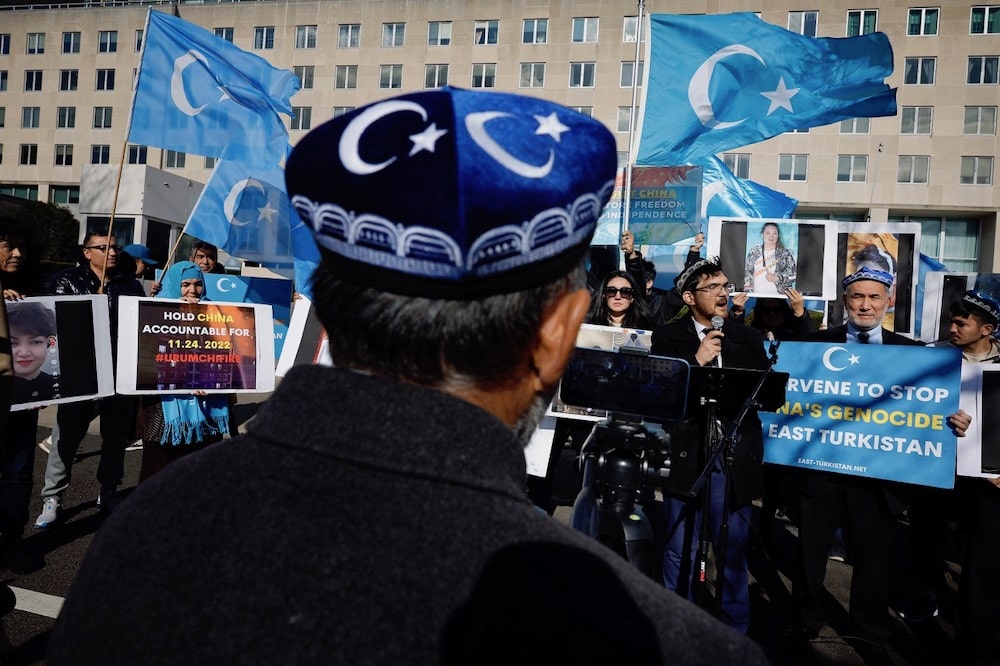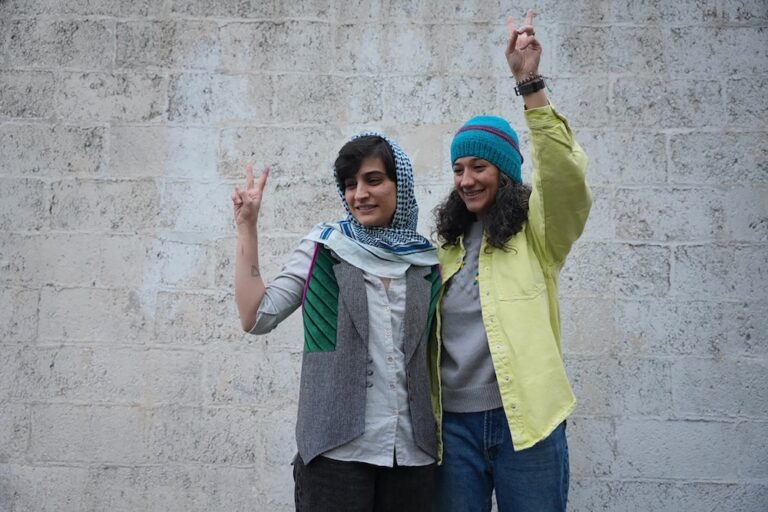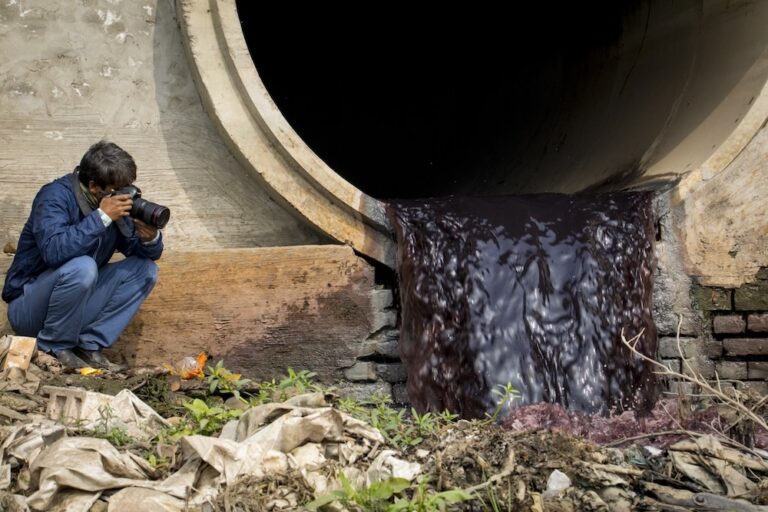"This year's top five jailers of journalists are Iran, China, Myanmar, Turkey, and Belarus, respectively. A key driver behind authoritarian governments' increasingly oppressive efforts to stifle the media: trying to keep the lid on broiling discontent in a world disrupted by COVID-19 and the economic fallout from Russia's war on Ukraine."
This statement was originally published on cpj.org on 14 December 2022.
The number of journalists jailed around the world set yet another record in 2022. In a year marked by conflict and repression, authoritarian leaders doubled down on their criminalization of independent reporting, deploying increasing cruelty to stifle dissenting voices and undermine press freedom.
By Arlene Getz/CPJ Editorial Director
Worst Offenders | Regional Repression | Census Methodology
It’s been another record-breaking year for the number of journalists jailed for practicing their profession. The Committee to Protect Journalists’ annual prison census has found that 363 reporters were deprived of their freedom as of December 1, 2022 – a new global high that overtakes last year’s record by 20% and marks another grim milestone in a deteriorating media landscape.
This year’s top five jailers of journalists are Iran, China, Myanmar, Turkey, and Belarus, respectively. A key driver behind authoritarian governments’ increasingly oppressive efforts to stifle the media: trying to keep the lid on broiling discontent in a world disrupted by COVID-19 and the economic fallout from Russia’s war on Ukraine.
In Iran, dozens of journalists are among the estimated 14,000 Iranians arrested during the crackdown on protests sparked by the death in police custody of Mahsa Amini, a 22-year-old Kurdish woman arrested for allegedly breaking Iran’s hijab law. Since September, the demonstrations have spread nationwide, with protesters broadening demands for women’s rights to calls for strikes and the overthrowing of Iran’s leaders. Authorities have imprisoned a record number of female journalists – 22 out of the 49 arrested since the start of the protests are women – a reflection of the prominent role they’ve played in covering this women-led uprising.
In China, authorities tightened online censorship during recent protests over the government’s zero-COVID lockdown policies and several journalists are reported to have been briefly detained while covering the demonstrations.
CPJ’s data also highlighted another theme: the ongoing repression of minorities.
In Iran, Kurds have borne the brunt of the Iranian government’s retaliation against the protests, and at least nine Kurdish journalists are among those in jail. In Turkey, authorities arrested 25 Kurdish journalists working either for the Mezopotamya News Agency, the all-female JINNEWS outlet, or production companies that made content used by Kurdish outlets in Europe. In Iraq, all three journalists on this year’s census are jailed in Iraqi Kurdistan. And in China, many imprisoned journalists are ethnic Uighurs from Xinjiang, where Beijing has been accused of crimes against humanity for its mass detentions and harsh repression of the region’s mostly Muslim ethnic groups.
Imprisoning journalists is just one measure of how authoritarian leaders try to strangle press freedom. Around the world, governments are also honing tactics like “fake news” laws, are using criminal defamation and vaguely worded legislation to criminalize journalism, are ignoring the rule of law and abusing the judicial system, and are exploiting technology to spy on reporters and their families.
Database: Journalists imprisoned for their work in 2022
Download the PDF
In countries ranging from Russia to Nicaragua to Afghanistan, independent media outlets have been gutted as reporters flee into exile or are intimidated into self-censorship. And while suppressive strategies differ between countries, the cases documented in CPJ’s census share a common thread of official cruelty and vindictiveness.
Some, like China and Saudi Arabia, have a record of keeping journalists in detention even after their sentences end. Others engage in random acts of callousness. In Vietnam, for example, journalist Pham Doan Trang, serving a nine-year sentence for distributing propaganda against the state, was transferred from Hanoi to a remote prison more than 900 miles away from her family – a common tactic to prevent regular prison visits.
In Belarus, Belsat TV correspondent Katsiaryna Andreyeva, one of dozens of journalists detained for documenting nationwide protests against President Aleksandr Lukashenko, was on the verge of completing a two-year prison term when a court sentenced her to another eight years on a charge of “giving away state secrets.”
In Turkey, where the Constitutional Court ordered a retrial for Hatice Duman – already 20 years into a life sentence – the journalist told an Istanbul court this month that prison officials had confiscated her legal documents and notes several weeks ahead of the trial, thereby violating her right to prepare for her defense. (Earlier, Duman told a CPJ in an interview that personal possessions like her desk, books, diary, and even blank pieces of paper were also taken in the ward raid.)
Other key takeaways:
WORST OFFENDERS
#1: IRAN
Iran’s crackdown on mass protests following Amini’s death left at least 62 journalists in jail as of December 1. The count would have been even higher had another 21 journalists detained after the start of the demonstrations not been released on bail ahead of the census date.
The number of women among those held is unprecedented. When Iran jailed a then-record number of journalists in the years following the disputed 2009 presidential election, peaking with 47 journalists imprisoned in 2012, just four of those reporters were female.
By contrast, 24 women are listed in this year’s census; 22 were of them arrested after the protests began.
During this year’s arrests, sources told CPJ of a pattern of predawn raids on reporters’ homes, with police seizing their devices and sometimes beating those they took into custody. Often, their coverage disappears too. Many of their social media accounts – a key publishing platform in a country where most media are state-controlled – have vanished, either shut down by the government or preemptively deleted by journalists fearing retaliation for their reporting.
The 62 behind bars represent the highest number documented by CPJ for Iran in the 30 years of its census, easily surpassing the previous imprisonment record set during the aftermath of the country’s disputed 2009 election.
#2: CHINA
China’s tight censorship of the media and the fear of speaking out in a country that conducts such extensive surveillance on its people makes it especially difficult to research the exact number of journalists among its prison population. Against that backdrop, the slight drop in the known number of journalists jailed in the country – from a revised total of 48 in 2021 to 43 in 2022 – should not be interpreted as any easing of the country’s intolerance for independent reporting.
Uighur journalists continue to comprise a significant portion of those serving harsh sentences on nebulous charges. Omerjan Hasan, for example, is serving 15 years for publishing an unofficial history of the Xinjiang region. Ilham Weli, Juret Haji, Mentimin Obul, and Mirkamil Ablimit have been held since 2018 on the accusation of being two-faced – a term Chinese authorities frequently use to describe those they see as openly supporting but secretly opposing government policy. Editor Memetjan Abliz Boriyar, also detained since 2018, is accused of approving the release of books that only later were banned by Chinese authorities. Another disturbing trend: A group of students who worked for Ilham Tohti, the jailed-for-life founder of Xinjiang news website Uighurbiz, are among those believed to have completed their sentences – and then moved to so-called “reeducation camps” instead of being released.
In Hong Kong, independent media outlets have been silenced following Beijing’s punitive targeting of those like pro-democracy media entrepreneur Jimmy Lai. The treatment of Lai, incarcerated since December 2020, is seen as emblematic of authorities’ growing disregard for due process and the “one country, two systems” arrangement guaranteeing Hong Kong’s judicial independence from China. Lai, who has U.K. citizenship, remains in a maximum-security prison even after completing a 20-month sentence on various charges. On December 10, while awaiting the start of another trial that could lead to a life sentence under a draconian national security law, he was sentenced to five years and nine months on fraud charges – even as his legal preparation for the security trial was hampered by Hong Kong authorities’ pushback against the November ruling by the city’s top court that he could be represented by a British lawyer.



